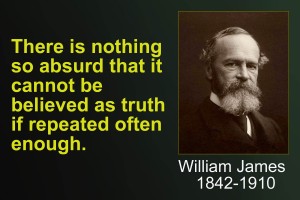According to Douglas Kenrick at Psychology Today, liberals and conservatives adopt their morals regarding sexuality in order to serve their preferred lifestyles. Kenrick breaks it down like this--first of all, for skeptic liberals:
1. Smart people are more likely to go to college.
2. If you are going to get a college degree, it helps to delay starting a family.
3. Smart people still have sexual drives.
4. If you don’t want to wait till you are in your mid- to late- 20s to start having sex, but aren’t ready to settle down, you have liberal attitudes about sexual behavior, birth control, and abortion.
On the other side of the coin, if you are not going to go to college, and you want to have a family early, you don’t want a lot of promiscuous people running around – available unattached sexually experimenting people disrupt monogamous families. Early reproducing women don’t want those “loose women” hanging around tempting their husbands, because that means less resources for their children, and a possible divorce. Early reproducing men don’t want promiscuous men lurking around, because they want to be sure that those children they’re supporting are their own.
People don't come prewired with beliefs. Rather they choose their morality based on their perceived needs:
liberal nonbelievers adopt a certain set of attitudes not because they are more logically compelling, but because they serve a particular lifestyle and mating strategy. Because liberals are more educated, they are better at expressing their ideas in compelling logical ways. But although the beliefs on "our" side may seem more logical and enlightened, Weeden has abundant data to show that political and religious attitudes are less about logic than about serving one's own reproductive goals.

